
Seven women, including students and former members of the GuanaRed cultural management group, pointed fingers at Nicoyan professor and singer-songwriter Olman Briceño for acts ranging from touching and incessant harassment through digital platforms to rape.
Messages saved by two UCR Guanacaste students prove that Briceño invited them out and asked them questions and made comments with sexual content. Among the other accusers are two young women who claim they were minors when they received sexual propositions or images. At least three women reported physical abuse. None of them had filed a criminal suit at the time of this publication.
Part of their testimonies were backed up by other former members of the network or people close to the accusers, who told their story to The Voice of Guanacaste and the Semanario Universidad in order to publicly denounce the professor. Briceño categorically denied all the incidents.
***
Paulina thought of Olman Briceño as her “sensei” in the GuanaRed group of artists and cultural management. He was someone she trusted a lot and admired greatly. “He told me that I was the protector of the network’s energy, that I was very important. I was super happy with that role,” says Paulina, who asked to remain anonymous for this publication.
In 2009, GuanaRed organized the second Kaleidoscope Mesoamerican Art Network Meeting in Nicoya, and Paulina attended. She, 19 at the time, and Olman, then 27, appear in a photograph at that time.
One of those days, she says that she was in his house, in a small office that could barely fit a computer and a few books. “The wife had to go out to do something. Then she took the little boy with her and the moment she left, he came in quickly to where I was. Then he tells me: ‘Come for a little bit.’ He grabbed me like this and took me to the other room and said to me: ‘Kneel down.’ Then I kneeled down, the guy pulled out his penis and put it in my mouth. And he said: “Come on, come on, fast, fast.”
Paulina says that at that moment she was paralyzed, disconnected. “And I did it, I did it. The guy said to me, ‘Lie down.’ Then I laid down, he took off my underwear, put on a condom very quickly and began to penetrate me. I did nothing. I just stayed there.” She says that she was like a vegetable, that she only moved with the inertia caused by the penetration, like a puppet. But nothing else.
“Now the guy finished and immediately got up. He was a friend of my boyfriend, so he tells me: ‘Well, this stays between us because he and I have been friends for many years, he is like my brother, and since I am married, then people will not understand and things would get all tangled up.”
Paulina says she put on her clothes and went back to work, but when she was back home it dawned on her, “He raped me, I said. I was raped.”
At least five people confirmed that she told them, in the months and years that followed, that she had suffered “abuse” by Olman Briceño.
One of the first to know about it was Fresia Camacho, who was assuming the role of guiding with the GuanaRed in those years. “I received a complaint from her. At this time, I honestly do not remember the details, but I do remember that Olman talked about free love, he approached young and often very innocent women. He would entangle them in a web. In that case, she told me that he had indeed approached her and she had had, let’s say, an abuse.”
Fresia says she does not remember if Paulina mentioned the word rape, but she stated that the issue of abuse by Briceño “was in the air.”
“I did know of several cases in which Olman had improper behavior, improper conduct with young women, and with sexual advances and even with an underage girl.”
She also stated that she confronted Olman and that he explained that his conduct was not aggressive. “He totally made light of it. He justified it and made light of violent behavior,” Fresia recalled. The action she decided to take at that time was to organize workshops to combat sexual harassment within the network.
Paulina said that she never filed a criminal suit due to lack of support and fear. By the time of this publication, the 10-year statute of limitation that the law gives would already be expired for this case.
Other former members of the network remember that Paulina was one of Olman’s favorites. By then, the singer-songwriter had already founded cultural clubs in Nicoya, meeting places and artistic groups that got together monthly in the cities to do theater, poetry, singing and verbal sparring performances.
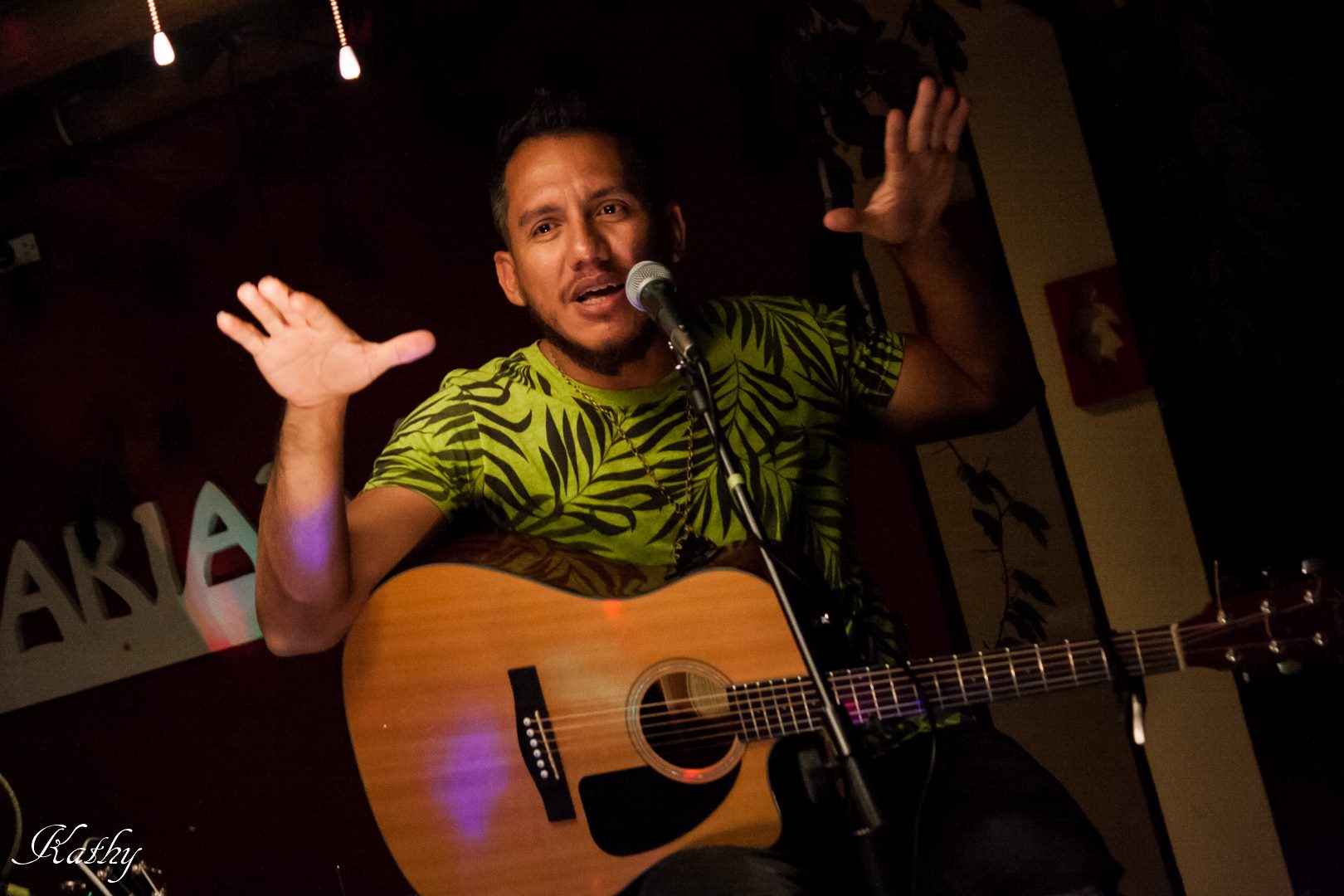
The Nicoyano singer-songwriter is 37 years old. In 2018 he published his latest musical production.
The singer has recorded three CDs, has performed on stage with international singers and continued to participate in the musical and artistic scene as one of the most recognized exponents of music in Guanacaste.
The people interviewed describe him as a young person whom many admired for his music and his management ability. His friend Luis Fernando Barrantes, a storyteller, says he has known him since 2000, when he heard him sing and invited him to participate in his presentations.
He clarified that he would not comment on the specific case because he cannot remember what happened at that time due to a brain tumor. “If they were going to hold a trial, perhaps I would make an effort. Olman is a great friend of mine and I would make an effort to tell it well, but in a trial. The press doesn’t interest me,” he said.
Paulina also told two of her friends from the network: Cristina (who requested anonymity) and Esteban Alfaro, one of the first members of GuanaRed. Both confirm that she and other women began to express their discomfort with Olman’s conduct.
A couple of years ago, Paulina ran into Walter Morera, a mutual friend of both her and Olman, on a bus. She says she told him the whole story. Morera confirms that they talked about the subject, but says he doesn’t remember that it was “something as heavy as a rape” and that he has a very good opinion of Olman. “I consider him a respectable person, a listener, a person who has my trust,” he said.
A couple of years ago, Paulina told the guy who was her boyfriend at the time, as he himself confirms. “She was very affected. She told me that they ended up having oral sex in that situation. It was a matter without consent,” he recalls. Neither of them are part of the group today, ten years later.
In fact, her ex-boyfriend now remembers that the turnover rate of people was very high and that he left the network because he did not like Olman’s attitude. “What I have always known is that companion, Briceño, has had a dynamic of seduction and harassment within the organization that we were in, which was GuanaRed. In fact, I left there due to that, due to some things that to me didn’t really fit together,” he related.
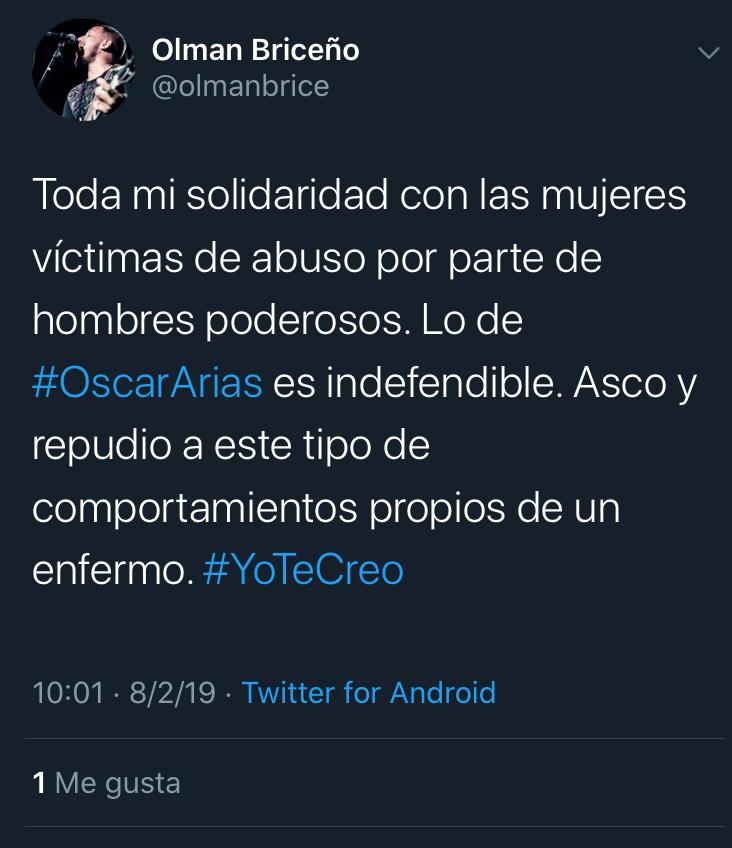
“My complete solidarity with the women who are victims of abuse by men in power. What #OscarArias did is indefinsible. Repulsive and I reject this type of behavior of a sick man. #IBelieveYou”
Paulina’s husband says she told him a few months ago, when the Oscar Arias case broke out. “She was a little out of sorts and then afterward she had the confidence and told me a little about what she had been through. She told me that she had been a victim of rape. I didn’t want to dig into details. She simply told me and I supported her. I didn’t ask her a lot.” Paulina says that that was precisely the day when her memory was reawakened, when she realized she had to speak up.
The Voice of Guanacaste and Semanario Universidad looked for Briceño at the University of Costa Rica in Liberia on Tuesday, November 19, 2019, in order to hear his side of the story in light of these accusations. Briceño said he categorically denied all the denounces, that he’s always been honest in his job and that it was the first time he had heard about the accusations. This newspaper insisted on obtaining more details but he refused to give more statements. “I’m surprised,” he said before getting into the car and leaving.
However, on October 21, 2019, the GuanaRed organization had sent him a letter explaining that, as a result of the allegations of harassment, they had decided to suspend his participation in the network completely. Briceño replied to the mail indicating that he had no knowledge of the allegations.
“There are anonymous defamatory publications made in a very convulsive context within the UCR Guanacaste Campus. It is going through moments of strong structural changes,” he indicated in his reply, of which this newspaper has a copy.
“Not making assumptions is a Toltec agreement, companions. I beg you to take that into account,” he added in the email.
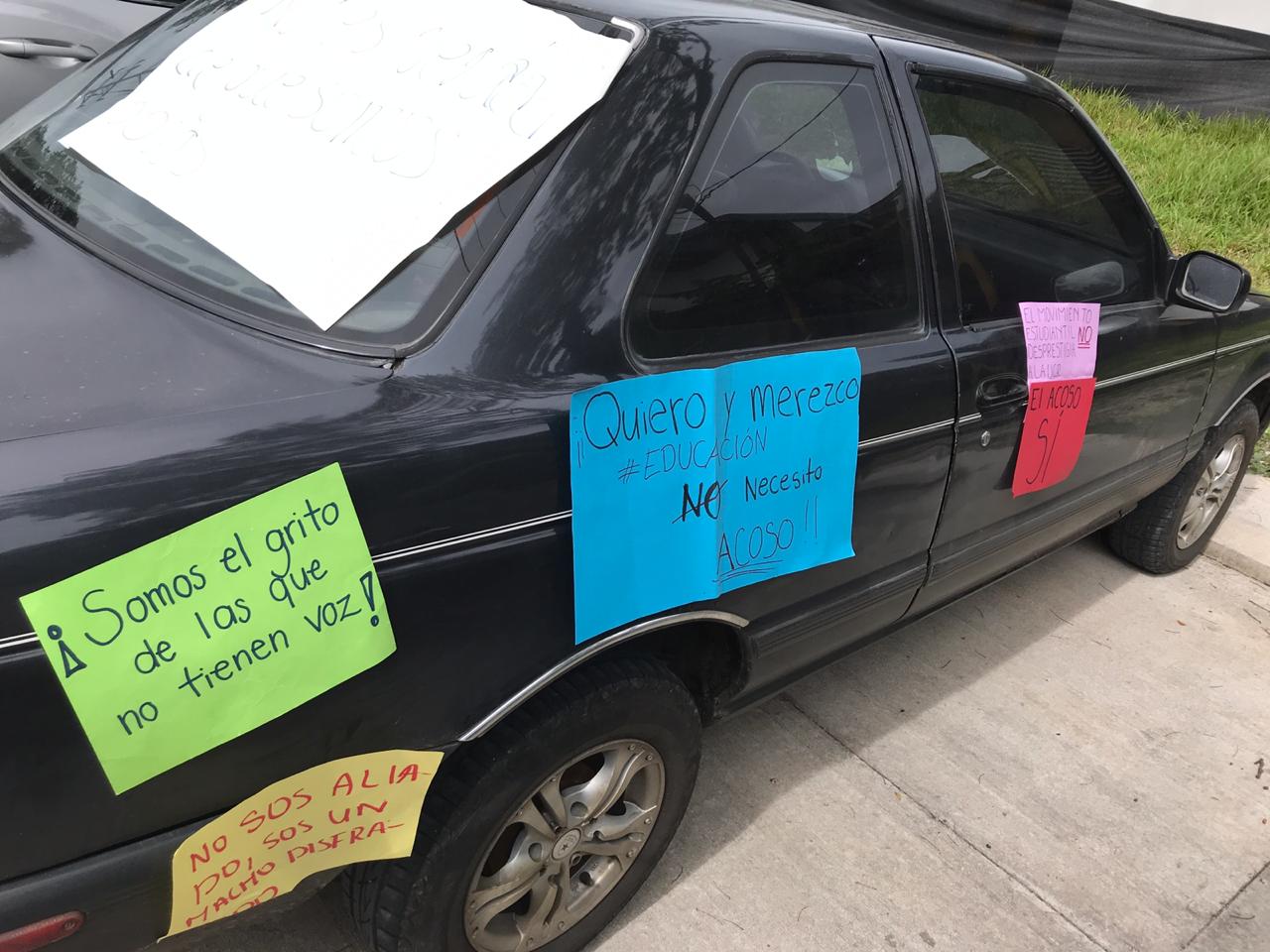
Photograph of November 11, 2019. Briceño’s car is covered with protest signs: “We are the cry of those who have no voice!”, “I want and deserve education, I DO NOT need harassment”, “The student movement does not discredit the UCR, the harassment itself does”,” You are not an ally, you are a male in disguise “.
***
Without talking about the specific case, the gender specialist for the Women’s Studies Research Center (CIEM- Centro de Investigación en Estudios de la Mujer), Sylvia Mesa, says that it is common for women to not manage to say no, and that does not mean that it is not rape.
“Just like that, a very strong woman who has not had major problems in her life can say, ‘Get off.’ But a woman who has more factors that make her vulnerable probably doesn’t manage to say anything,” the specialist contends. “If she freezes and he continues, he is doing it against her will,” she adds.
Mesa points out that society has many excuses to justify the behavior of men who rape women like: “He thought that she wanted it, she didn’t hit him, she stayed still. It is not understood that there are different ways of saying no that are not necessarily verbal,” she stated.
“There are women who hit the one who touched them, there are others who scream, there are others who move away and there are others who cannot do anything, who stay still. They are different possible responses,” she added.
***
In the course of a week, The Voice of Guanacaste and Semanario Universidad listened to the stories of at least seven women who accused Briceño of sexual assaults ranging from harassment to rape. Most of them were first received by the group Me pasó en la UCR Guanacaste (It happened to me at UCR- Guanacaste). The women also approached both media in order to denounce collectively and publicly the events that are said to have occurred between 2005 and 2016.
One of the most recent cases is that of a young woman who was one of Olman Briceño’s students in 2016, in a psychology course for non-majors. The messages she shared with this newspaper show a conversation in which she expresses her discomfort with his comments.
“What lovely photos, but you are lovelier live and in person,” he told her. “How do you consider yourself? tender, passionate or ardent?” The screenshots show that she expressed that she felt uncomfortable at least once when he told her that she seemed “very sensual.” After this exchange, he asked her several times if she was upset about what he said. During school vacation, he told her to go away with him and she rejected him.

“At that time I was 19 years old, so I was scared. I thought maybe I wouldn’t pass the course. So I responded out of commitment,” says the student. The uncomfortable exchanges didn’t stay just there, but they went beyond that into the classroom, according to her story.
“In class he told me what a lovely blouse or how lovely I looked in front of all my classmates and everyone saw the intentions beyond that and it was super uncomfortable for me and for everyone,” she recounted.
The other case happened the same year, when Olman Briceño told a former student that he wanted to “hug you, to feel your heart … and screw you really good once and for all…” In the conversations shared with The Voice by the young woman, he tells her that he has never been with a student, “I haven’t even touched a hair on you whom I desire so much.”
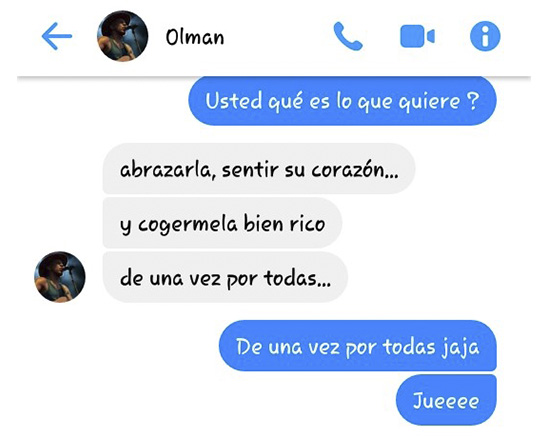
Neither of the two students could file a complaint for harassment before the university magistrate because it was more than two years ago. “I went to San Jose to try to file a complaint with the Commission [against sexual harassment, of UCR]. I was assisted by the interdisciplinary team psychologist, who told me that due to the time, the statute of limitations had already expired,” said the second student.
The commission cannot confirm specific cases because they must be kept confidential, but it is true that the law against sexual harassment gives victims a period of two years to file a complaint from the moment that the relationship of power that prevents them from filing a complaint ceases.
The director of the psychology degree program at UCR’s Liberia campus, Marleny Campos, confirmed through the university press department that she met with the students after they began to make complaints on their Facebook group page to help them think about solutions related to the harassment cases that the students denounced. She also asked the students to put everything in written and bring it along to her office.
So far, the university has not indicated that it has made any decision regarding the particular situation of the students with Briceño.
***
Not filing complaints is the main obstacle to combating cases of abuse and harassment within the University of Costa Rica, according to Mesa, from CIEM. However, she explained that it is normal for victims not to report it.
Many factors can lead victims to keep quiet. One factor is the way that society judges those who report it. “When a woman is harassed in this society, they say ‘look at how she dressed, how she did her makeup, how she behaves, because she had a lot of boyfriends,’” the specialist added.
Although she clarified that it may be a stereotype, she said that Guanacaste has an aggravating factor: the level of machismo. “When a misogynist environment exists, an environment of discrimination, women’s exposure to violence is much higher and reporting it is much more difficult,” Mesa believes.
And in the entire country, she added, judicial proceedings can be revictimizing, slow, long. And especially painful.
***
Two women were minors when they faced sexual assault by Briceño, according to their allegations. One of them, who asked to be identified as Andrea, said she was 13 when she met Olman when they organized clubs in Liberia and he held a poetry workshop. “I saw him as an older brother because he gave poetry workshops and was next to older people,” she recalled.
When she was 16, her mother bought a computer because she was going to do a study abroad exchange for a year. One day, during a conversation on an instant messaging platform, she said that Olman sent her a photograph of his penis. She related that she was very scared, she erased it and never spoke to him again and tried to “keep her distance.”
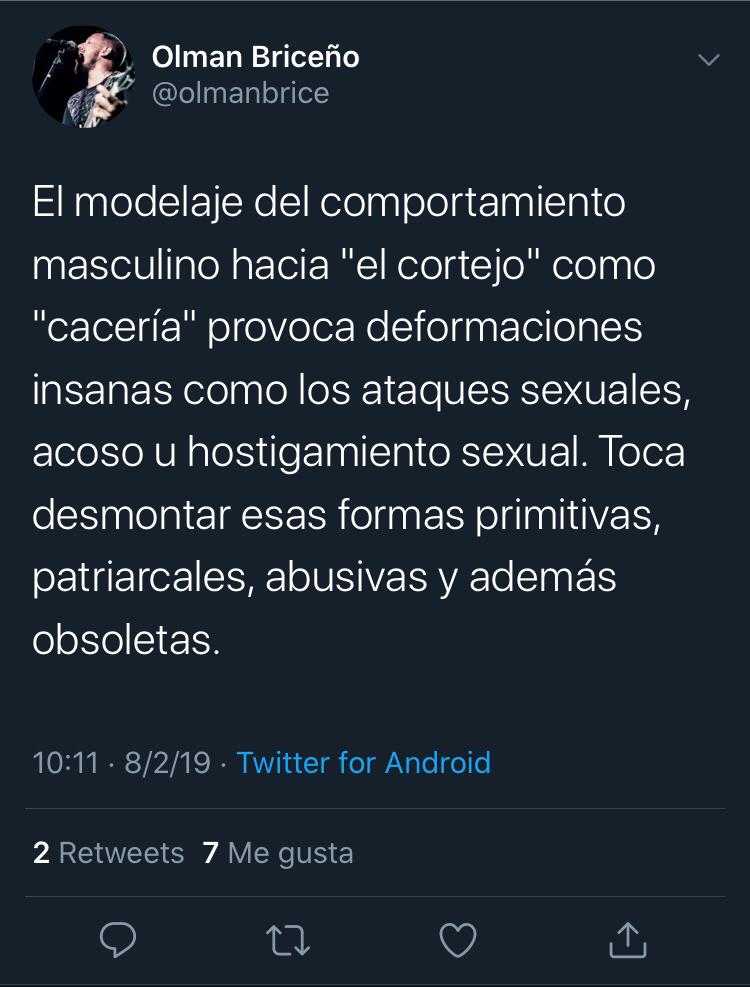
Modeling male behavior towards “courtship” as “hunting” causes insane deformations such as sexual attacks, stalking or sexual harassment. It is time to dismantle those primitive, patriarchal, abusive and also obsolete forms.
A close friend of hers remembers that Andrea told her what happened. He never tried to harass her, but she said he once told her that she looked good in a tight blouse because she looked less “chubby.” “And that hurt me,” she commented.
The other woman who was a minor, according to her testimony, asked to be called Marcela and is Paulina’s cousin. She said she was 17 when she met him at a meeting in Tibás between 2011 and 2012. After the meeting, she said that he started writing to her and it seemed normal, until he invited her to go out with him.
“He was very insistent. I spoke to him cordially. When I rejected him and told him, ‘No, look, I definitely think you’re confusing things,’ the guy became super rude, he told me that I was a slut, asked who I thought I was, if I was just like my cousin, that he had already kissed Paulina, that nobody had to find out.”
In another community meeting, also in Tibás, she recalled that she ran into Olman again, who repeated that he knew Paulina, that she did not have to be afraid and complained that I was playing hard to get,” she related.
Marcela said that before that, Olman seemed like the type of guy who was all “peace and love.” When she told Paulina, she told her that he had also harassed her but gave her no further details. She blocked him and did not return to the GuanaRed meetings.
Mendez preferred to be identified only by her last name. In November 2009, she wrote an article for a magazine and quoted Olman Briceño as a source. She said she went to his house to talk about that article and that she was in the same office that Paulina described: the one with the computer and books. It was nighttime, his wife at that time was in the kitchen.
Her account goes like this: he talked to her about the article, assured her that he does not overlook anything related to the GuanaRed and began to touch her leg… “and he tried to touch me more and I just stayed super in shock. And I thought: ‘Shit, the wife is there.’ I could not rationalize anything, I only thought about the wife. And obviously I didn’t want that.”
Mendez said that he managed to touch her groin, but he couldn’t get past there because she got up, said goodbye to his wife and left. She never reported it because she didn’t believe she had enough legal basis, she says now.
“I was very young, I had no clue, and I normalized many of the things that happened in GuanaRed,” she said. Like her, several people interviewed describe in a positive way the talk of love between members of the network, the festive atmosphere, the explosion of theaters and poets. But on some occasions, Fresia Camacho said, that same environment lent itself to “confusions.”
“We toured, we formed clubs, there was a festive atmosphere, we began to see that there was confusion and that the festive atmosphere lent itself to that confusion, and therefore we had to set clear limits,” she related.
Mendez is not the only one who says she was molested. Another accuser said that he touched her rear end when he hugged her, but she pushed him and it did not go farther.
Peggy Chamorro is a psychologist. She knew Olman through the university and the social ministry of Liberia. According to her account, one day after a cultural club, she invited him to sleep in her living room. Her roommate was very open and didn’t mind having visitors. In fact, when they pulled the mattress out, Peggy’s roommate told Briceño, “There’s a draft there, put the mattress in the room,” Peggy recalled.
“The next day, my friend came out of her room and was super upset crying.” She told her that Olman climbed into bed with her at dawn and started touching her. She told him to get down, he pretended he was half asleep and she couldn’t sleep or move the rest of the night, until she heard Peggy come out of her room.
“I threw him out onto the street” Peggy recalled.
***
Paulina, who told the story of what she considers rape, said that what happened in 2009 marked her for the rest of her life.
She said that Olman looked for her several times after what happened. “He told me to come back, that the network was unprotected, that it needed my energy.” Then, according to her, he accused her of being irresponsible for not returning and compared her to Mendez, another of the accusers. “He told me: ‘You are just like Mendez. You are irresponsible. Mendez came, things were assigned to her and then she disappeared.’ And it made me feel awful because I loved the network.”
The last time he contacted her, she threatened to call his wife and tell her everything and also to report him. He disappeared, said Paulina. But she never reported him.
When she tried to explain why she hasn’t reported it, she broke down and started crying. “It would break my mother’s heart,” she said. She said that she was always willing to prevent it from happening to other women. When she saw him in some friend’s publications, she told them to please be careful.
Recently, she sent Fresia the full account of what happened to her, a conversation of which The Voice has a copy. Fresia regrets not having understood the seriousness of things. “When she spoke to me a little while ago about what all this had meant for her, I told her, ‘Honestly I feel super bad, if I had known the level of severity… we should have acted at that moment by filing a criminal complaint and everything. At that time I did not evaluate it that way.”
Paulina’s wounds have been healing little by little, but they still hurt. She says she is sure that her story would have been different if she had not undergone the abuse that forced her to distance herself from GuanaRed.
“Now things are different and I don’t regret anything. But at that time I was very active, I really worked hard at GuanaRed and I was very excited about studying, all with the hope that I would graduate from the university and return to GuanaRed because I saw my future there. There I had developed my life plan.”
*At The Voice we are committed to giving volume to the voice of people who have no other tools to act. If you know cases of sexual violence or abuse of power, you can contact our newsroom at 2685-4474, WhatsApp: (+506)8470-2648 or email [email protected]


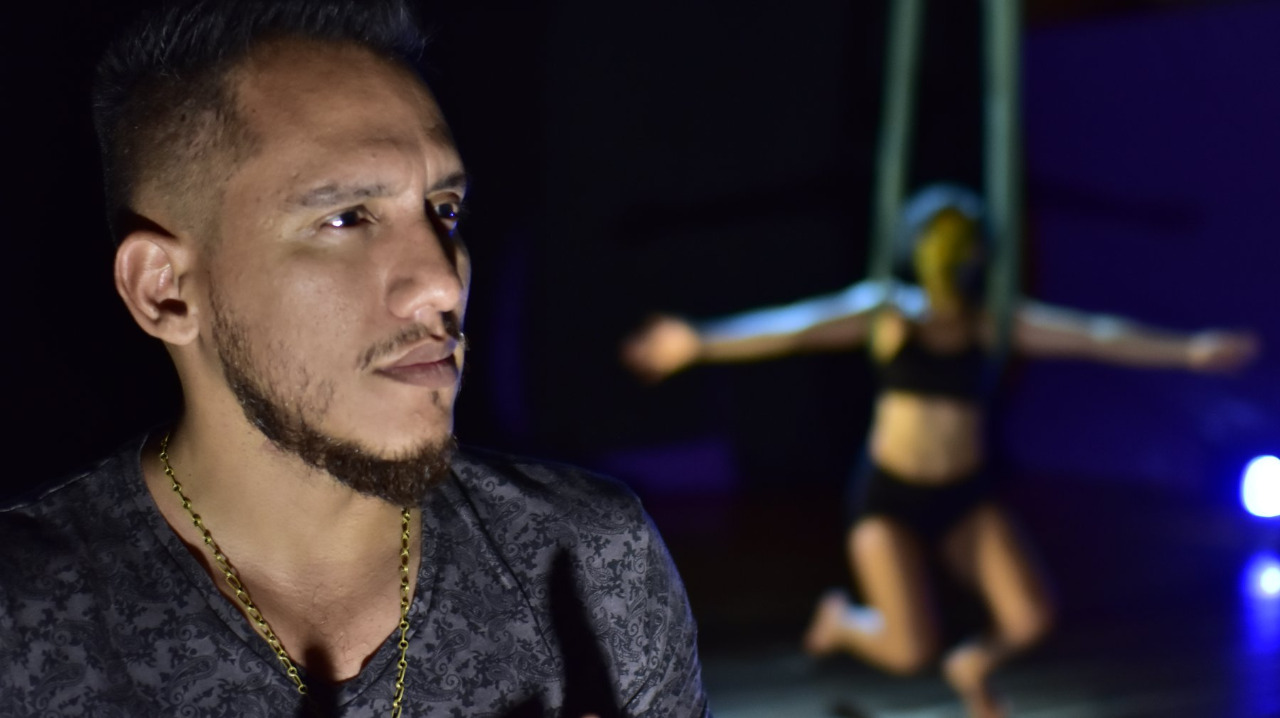
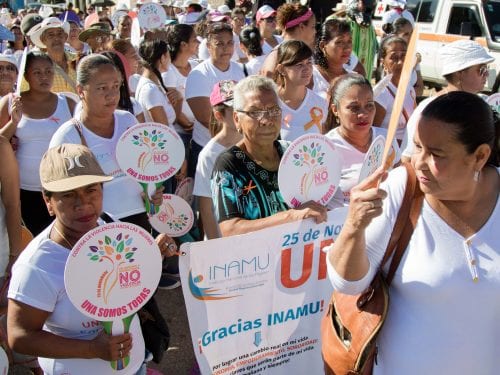

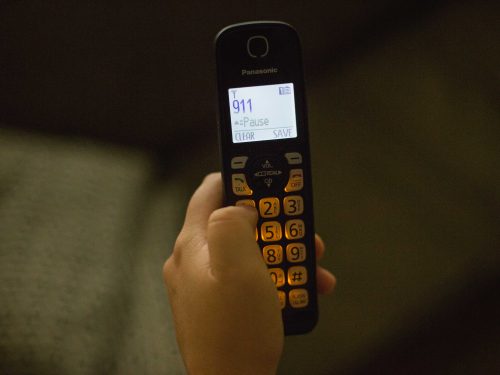

Comments